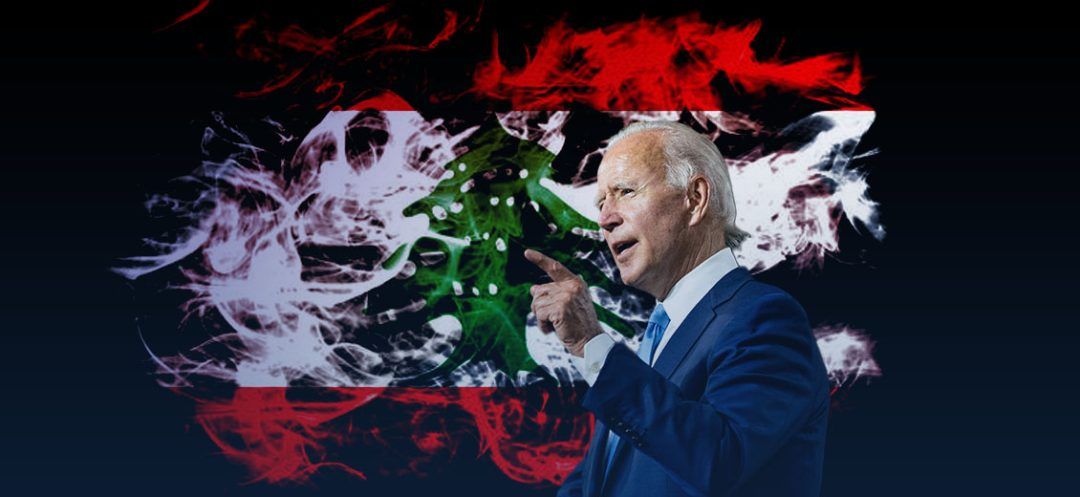- Home
- War in the Middle East
- US and France Mobilize to De-Escalate Conflict

Last week, the Western alarm, particularly from France and the United States, revealed a level of concern elevated to the point of genuine fear over the escalation of field confrontations between the Israeli army and Hezbollah turning into a full-scale war, which Washington has consistently warned about. Senior US officials have explicitly expressed, or conveyed through high-level sources, that the escalating clashes will lead to a major explosion. President Joe Biden even proposed a deal to resolve the conflict, which was rejected. Similarly, Israel refused to comply with the United Nations Security Council’s decision to stop the war.
Washington did not stop at raising its voice; it also activated its diplomacy by sending its envoy, Amos Hochstein, to the region. Hochstein visited Tel Aviv to attempt to contain the escalation, and Beirut to meet with the relevant officials, hoping to convince Hezbollah to curb its push towards heightened confrontations and avoid uncontrolled situations. All of this is part of a broader regional issue, seen through the lens of President Biden's proposal, which was the focus of talks in Europe during various events, summits and conferences. The Lebanon issue was also addressed, both in terms of preventing war and the necessity of electing a president, emphasizing the need to halt military operations and launch a political solution based on the two-state solution as a gateway to comprehensive peace.
This context explains the joint French-American diplomatic alert and President Emmanuel Macron’s announcement that G7 leaders agreed to form a tripartite committee, including the US, France and Israel, to discuss a French road map to defuse tensions between Hezbollah and Israel. These discussions followed a series of contacts led by French envoy Jean-Yves Le Drian and Hochstein, resulting in the inclusion of a section on Lebanon’s crisis in the final communiqué of the US-French summit at the Élysée. The drafting involved American officials and Élysée’s Lebanon Crisis Team, with Le Drian and Hochstein agreeing to a coordinated plan for Lebanon if a ceasefire in Gaza is declared, despite differing priorities. The mission includes electing a president, delineating maritime borders, and implementing UNSC Resolution 1701.
Le Drian contacted officials in the Vatican, Riyadh, London, Doha and Cairo for consultations on the Lebanon issue, fearing it might be postponed until after the US elections. He previously warned Lebanese leaders about Lebanon’s potential collapse. While Biden’s speech at the summit did not mention Lebanon, given his administration’s unresolved stance on the crisis, Macron’s speech focused on security in the south and the need to elect a president.
The summit’s final communiqué stated that protecting Lebanon’s stability and defusing tensions along the Blue Line are of utmost importance to both the US and France, who are working together towards this goal. They urged all parties to exercise maximum restraint and responsibility in respecting and implementing UNSC Resolution 1701. They also stressed the urgent need to end the 18-month presidential vacancy, elect a president without delay, form a government, and implement necessary reforms for Lebanon’s economic stability and growth. Similarly, in a joint statement, the Group of Four (US, France, United Kingdom and Germany) emphasized maintaining stability and uniting efforts to support de-escalation along the Blue Line in conformity with Resolution 1701. They called on all parties to exercise the utmost restraint to avoid regional escalation and work together to support the peace and stability plan proposed by Biden.
Will a ceasefire be reached, or will the war expand? Diplomatic circles indicate significant pressure to prevent the war from erupting. However, Israel has not yet agreed to Biden’s proposal. Although initially proposed by Benjamin Netanyahu, Biden modified it for his presidential campaign to ensure success against his opponent Donald Trump, given their close poll numbers. As for Hamas, it is consulting with Palestinian, Iranian and Arab leaders to coordinate its stance.
Informed Arab sources rule out widespread security deterioration due to international pressure on obstructors to adopt the proposal. Still, Israel is not ready to make concessions and give Biden a crucial card to secure victory over Trump, awaiting Trump’s return to the White House, which would shift regional power balances and standards. Meanwhile, Iran has activated its military tools and political alliances to destabilize the region, hoping to negotiate with the Biden administration before the US elections, fearing Trump’s return and his administration's sanctions. If a ceasefire is achieved per Biden’s proposal, sources indicate a swift resolution of the Lebanese crisis, in terms of both security and the presidency.
Read more



Comments